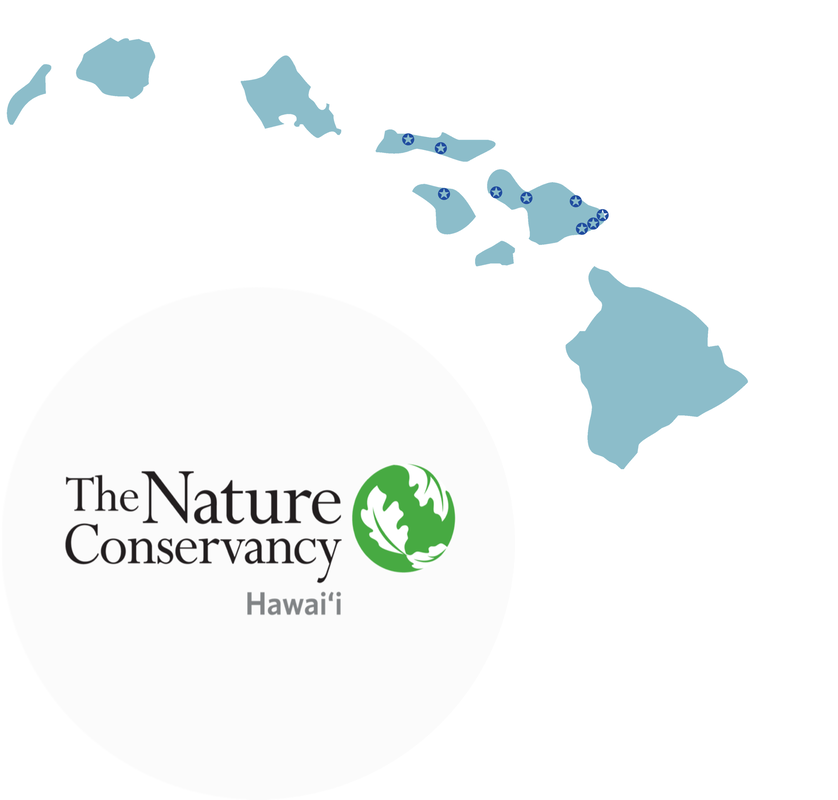|
Guided by science and its mission to conserve the lands and waters on which all life depends, The Nature Conservancy (the Conservancy) works with partners in 72 countries and all 50 United States to develop solutions to the world's toughest challenges so that nature and people can thrive together.
Since 1980, the Conservancy has contributed to the protection of 2.5 million acres of Hawaiʻi's forests - the source of our fresh water, and has led efforts to combat invasive species that devastate island habitats from mountains to nearshore coral reefs. Today, the Conservancy works with government and academic partners and more than 30 communities across the state to restore and protect the coastal habitats that support Hawaiʻi's culture, fisheries, economy, and way of life. These partnerships work to reduce pressure from polluted runoff, invasive species, and unsustainable fishing on reefs and fisheries, and to strengthen management efforts along Hawaiʻi's coasts. Its teams:
To learn more about its work, visit nature.org/hawaii and follow the Conservancy on Facebook, Twitter, and Instagram. Photo credit: Chad Wiggins/TNC (header)
|
Make a Donation!PayPal accepts all
major credit cards. |
|

